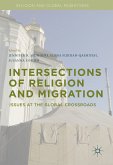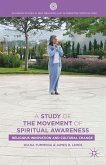This book examines the pilgrimages to China from Taiwan in the late 1980s and early 1990s and offers a wide-ranging account of urban planning statements, arguments about ritual propriety, and the material culture of pilgrimage. Taiwanese Pilgrimage to China argues that as Taiwanese pilgrims and their Chinese hosts translated values produced in ritual contexts into the terms of economic and political reform, they became complicit in a shared project of composing historical truth. With its attention to pilgrimages at a possible center of geopolitical conflict, Taiwanese Pilgrimage to China provides an account of how shared frameworks for action grow and advances anthropological understandings of conflict resolution.
Dieser Download kann aus rechtlichen Gründen nur mit Rechnungsadresse in A, B, BG, CY, CZ, D, DK, EW, E, FIN, F, GR, HR, H, IRL, I, LT, L, LR, M, NL, PL, P, R, S, SLO, SK ausgeliefert werden.









